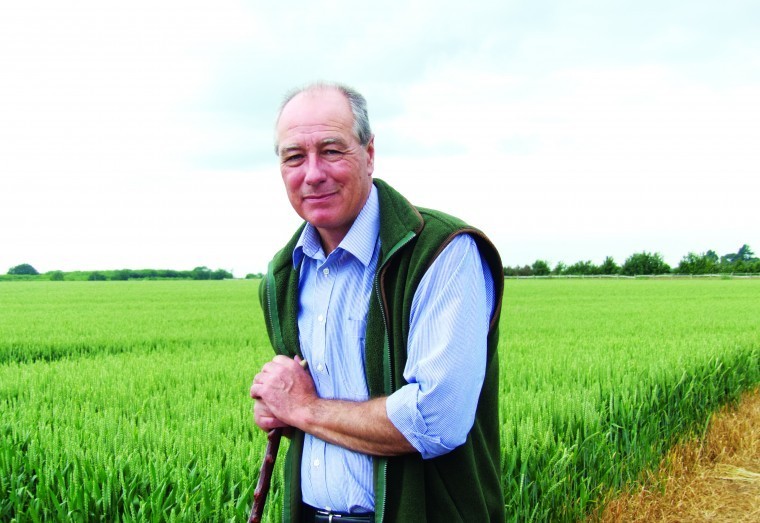Producing stale seed beds is a laudable aim and they are certainly stale but without the positive gains of grass weeds germinating and being removed with glyphosate.
The question is are those grass seeds viable and going to germinate or so dormant that they will just sit benignly in the soil. All those fields which we bypassed waiting for black grass to emerge still look barren and patience is running out. Drilling into very dry seed beds is always a gamble whether it is on the dry marsh soils where a little moisture can lead to blue mould or on the downland where seed vigour seems to ebb with time. Eventually we will get rain in Kent, no doubt lots off it and that time must be getting closer.
So we are now finishing off drilling first wheats relying on pre emergence residuals on good seedbeds backed up with Avadex on the historically worst areas for grass weed control. We have endeavoured to take advantage of the few spells of rain to apply these chemicals and hope that they are good enough. With our second wheats many of those stubbles are cleaner after wheat than the break crops so now we are into October we have had far less qualms about drilling those fields than the first wheats.
Oilseed rape in general has moved on with the little rain we have had and of the 1,200 acres we have drilled currently all of it has a chance, so it is a matter of giving it time before we make drastic decisions. Most of it has a second (or in some cases first) flush of volunteers and blackgrass and rye grass are easy to find. The current plan is to clear these up with Centurion Max as soon as the crop stage allows and then decide where we are in terms of crop viability later in November. The decision to apply Kerb can wait into December and the later the better as far as residual grass weed activity is concerned. However where we might choose Astro Kerb as a product we will need to be sure that we have a crop that will survive so that we do not limit spring alternatives.
Grain and oilseed markets seem to strengthen largely on currency weakness. The increases we have seen are useful as is the rate set for basic payment scheme (BPS) subsidies. One does wonder if the currency weakness is more to do with the base rate cut to 0.25% and the rhetoric from the governor of the Bank of England than the fundamentals of the UK economy. If that is the case when eventually the Bank of England do see sufficient inflation to raise interest rates, even back to 0.5%, we may see the pound rise significantly and quickly.
Fundamentally there is plenty of wheat in the world (although there is unlikely to be much left in the UK come next harvest) so any upwards readjustment in the pound would have a significant effect on prices. Where that puts us looking forward to next harvest who knows but wheat ex farm at £130 plus seems a lot more attractive than the recent low levels.
Turning to the evolving picture on Brexit we do know that the prime minister has decided to sign article 50 no later than March 2018 to appease her own party, leading to a conclusion some time in 2019 which links into the chancellor’s assurance that BPS will continue until then. It also logically takes us to the end of the current common agricultural policy reform and European budget cycle which is important to Europe with the contribution we make. That much makes sense but when one looks at the political landscape there are French elections in March and German elections in September.
President Hollande will not survive and Angela Merkel has a mountain to climb. So the two political powers in Europe will be in disarray until late 2017. With a two year time table we will likely spend the first six months with no one in Europe speaking to us until the new leaders are in place. That makes no sense and if the choice of timing was one of the prime minister’s strongest cards one cannot but conclude that it has just been wasted.
Much is also being made of strength of the team Brussels is assembling to lead the negotiations, how capable they are and what a hard line they will take. Clearly David Davis, Boris Johnson and Liam Fox have a task on their hands not helped by a red line in recovering control of emigration to the government. That said I am sure they can get us out of Europe into a World Trade Organisation position without too much trouble and clearly that is Liam Fox’s ambition.
The bespoke relationship is the more difficult ask and no doubt that will go down to the wire or beyond to achieve. For agriculture there are two clear asks as a starting point: access to the single market for agricultural goods and a seasonal agricultural workers permit scheme for non European Union workers. That is something we need to tell MPs and government at every opportunity.




